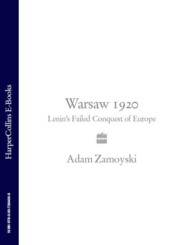скачать книгу бесплатно
This little book does not pretend to fill the resulting void. All it can aspire to is to provide an outline of the events, and specialists will find my generalisations wanting. Since the political and diplomatic background has been extensively covered by others (see Further Reading, page 149), I have concentrated on the military operations, and in particular on providing a synthesis accessible to the general reader and a succinct overview of what happened and how. This necessarily excludes dozens of minor actions and ignores the part played by many lesser actors, some of them of crucial importance. Nor can it give anything but a hint of the horrors and the heroism involved, or of the sense, which comes through all personal accounts and contemporary documents, that this was a crisis of European civilization.
I was fortunate enough to take an interest in these events some years ago, when many participants and even a few key players were still alive. There was something both exciting and unreal about sitting in a seedy London flat or a clapboard house somewhere in the great expanses of American suburbia, talking to someone who had stared death in the face at the end of a lance or seen the glint of Trotsky’s spectacles. It was also deeply rewarding, as it helped me to bridge the gulf between how events appear from documents and how they are experienced on the ground. Sadly, it was not then possible to talk to participants on the Soviet side, which would have added a remarkable perspective.
In spite, or perhaps because, of its contentious nature, the Polish-Soviet conflict of 1919–21 is extremely well covered in Polish and Russian, and there has never been any shortage of written sources. All of the essential operational documents were accessible, either in print or in archives, remarkably early on, and little has emerged in the past two decades to shed the kind of new light that would prompt a reinterpretation of the events. And although the numerous studies produced in Poland and Russia between the wars are rarely free of bias, they do contain a wealth of solid information. Perhaps surprisingly in the circumstances, it is the even more numerous accounts and studies by participants that provide some of the most interesting material. Although they tend to be written from a partisan and often blinkered position, an intelligent reading that takes this into account can yield rich pickings.
As the participants and witnesses I was able to interview are no longer with us, I would like in the first place to thank them, and particularly the late Aleksander Praglowski, Kornel Krzeczunowicz, Wladyslaw Anders and Adam Minkiewicz. I am also indebted to Stanislaw Bieganski of the Józef Pilsudski Institute and Waclaw Milewski of the Sikorski Institute in London; to Boguslaw Winid, to Dr Andrzej Czeslaw Zak of the Central Army Archive and Dr Grzegorz Nowik of the Army Centre for Historical Studies in Warsaw, to Professor Andrzej Nowak, Bogdan Gancarz, and to my friend Norman Davies. As always, Shervie Price anticipated the queries of the standard reader.
Adam Zamoyski
London
September 2007
Europe after the Paris peace settlement
Вы ознакомились с фрагментом книги.
Для бесплатного чтения открыта только часть текста.
Приобретайте полный текст книги у нашего партнера:
